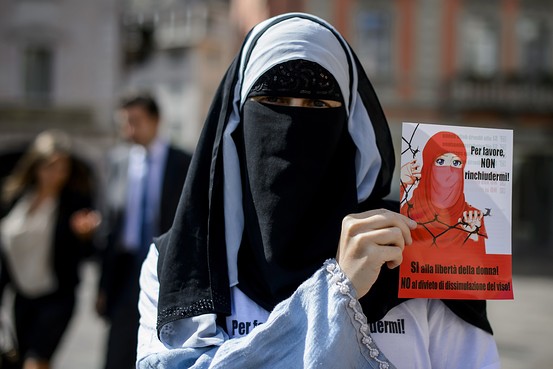The streets of Paris, a city renowned for its artistic flair and cultural diversity, have recently become a focal point of significant sociopolitical discourse. A legislation banning the burqa has raised profound questions about civil liberties, cultural identity, and national security. Is it possible that a garment could incite such a whirlwind of controversy? The answer, as France’s contentious relationship with the burqa suggests, is a resounding yes.
The ban, which encapsulates a broader prohibition against “face-covering garments,” was introduced under the premise of upholding secularism and public order. In a nation where laïcité—the principle of separating church and state—is deeply entrenched in societal norms, the move has been presented as emblematic of France’s steadfast commitment to its secular values. However, this decision has not come without significant opposition. Critics argue that the law unfairly targets Muslim women, effectively restricting their freedom of expression and religious practice. Has France then traded one form of oppression for another?
At its core, the burqa ban encapsulates the delicate balance between protecting societal norms and respecting individual rights. Proponents of the law contend that the absence of facial visibility hinders social interaction and can foster security concerns. They argue that, in public spaces, anonymity could lead to an increased risk of criminal behavior. Yet, juxtaposed against this rationale is the voice of those who advocate for personal autonomy, stressing that choice must be respected, regardless of cultural background. What then is more crucial in a democratic society: the enforcement of a collective identity or the protection of individual liberties?
This dilemma also draws attention to broader themes of integration and multiculturalism within European societies. As immigration continues to shape the demographic landscape, many confront the challenge of reconciling diverse cultural practices with established traditions. The French government’s stance on the burqa can be viewed through a lens of assimilation, suggesting that adherence to French customs should supersede individual practices. Yet, could this stance alienate the very communities that the nation seeks to integrate?
Moreover, the reaction to the ban reveals the complexities of public sentiment in France. While a segment of the population supports the prohibition as a means of protecting secularism, another portion perceives it as an infringement upon the rights of women who voluntarily choose to wear the burqa. This divergence underscores a critical societal rift that requires thoughtful dialogue rather than divisive rhetoric.
As the debate surrounding the burqa continues to unfold, the question remains: can France navigate the treacherous waters of identity, freedom, and security without compromising its foundational ideals? The answer is likely to be as multifaceted as the culture itself, requiring ongoing reflection and engagement as society confronts the realities of a rapidly changing world.
